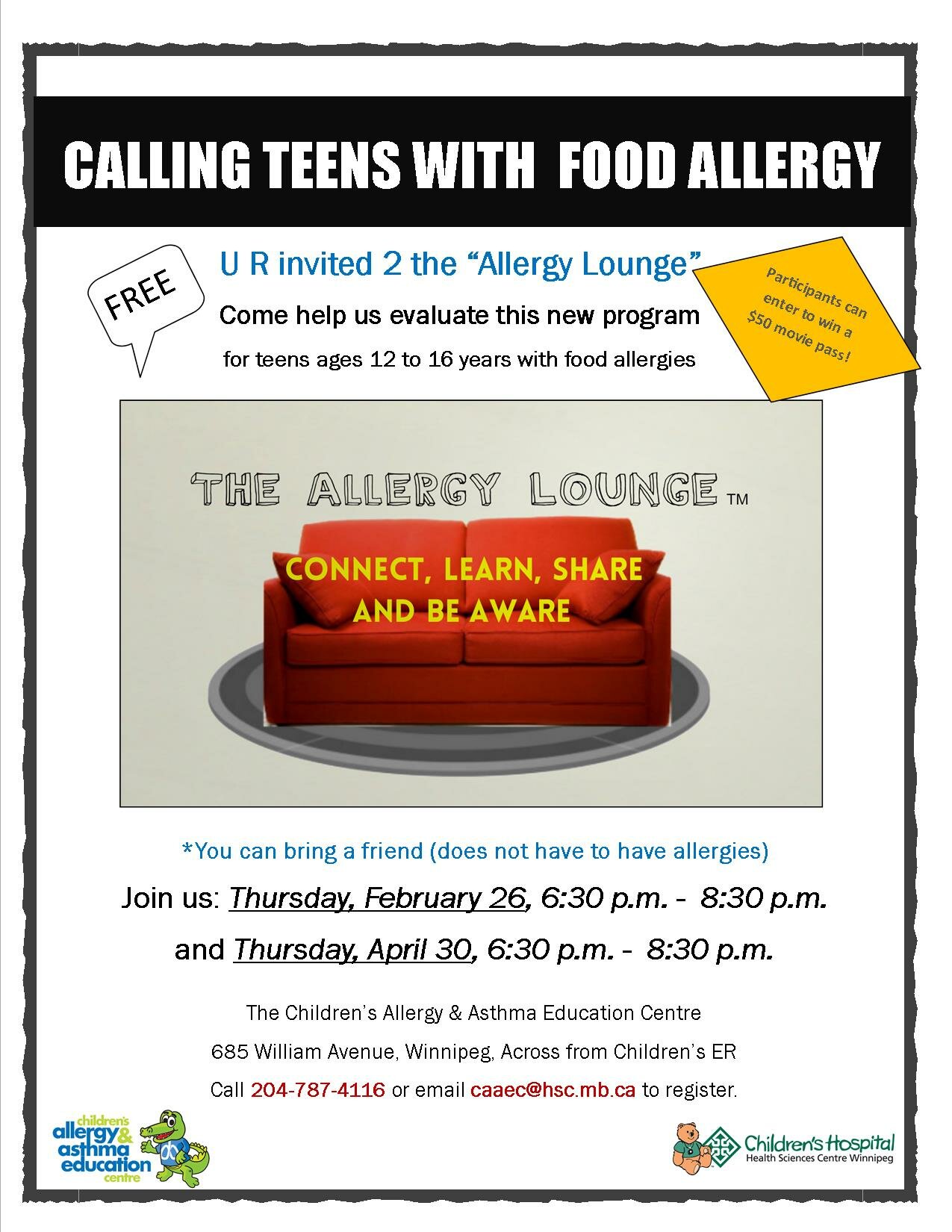- Home
-
Allergy & Asthma Information
- Asthma: The Basics
- Living With Asthma
- Asthma Tools
- Asthma Triggers
- Asthma & Eczema
- Asthma & Allergy
- Hay Fever
- How to use a:
- About Us
- Order Info
Allergy & Asthma News
World Allergy Week 2015
 Get involved during World Allergy Week 2015 and increase awareness of Airway Allergies - A Human and Economic Burden. There are many ways you can participate, get involved and increase awaweness about asthma and allergies.
Get involved during World Allergy Week 2015 and increase awareness of Airway Allergies - A Human and Economic Burden. There are many ways you can participate, get involved and increase awaweness about asthma and allergies.
The World Allergy Organization (WAO) is addressing the need for greater awareness and understanding of allergy topics as well as the exchange of ideas and collaboration in order to address a variety of safety and quality-of-life issues related to the care of patients with allergic rhinitis and asthma.
Click here to download the World Allergy Week 2015 logo for your website.
Read the full report for participation during World Allergy Week 2014.
Our New Winter Newsletter for 2015 is now available. Click on the link below to check it out.
Allergy & Asthma Adventures Newsletter Winter 2015
Bullied Winnipeg Teen teaching peers about Food Allergies!
http://www.cbc.ca/news/canada/manitoba/bullied-winnipeg-teen-teaching-peers-about-food-allergies-1.2837297


Dr. Allan Becker, Professor of Allergy & Clinical Immunology at the University of Manitoba and
Director of the Children's Allergy & Asthma Education Centre (CAAEC), discusses the signs and
symptoms of anaphylactic reactions, and what to do in the case of an anaphylactic reaction.
http://youtu.be/184oft9bW0s

New Online Anaphylaxis Education
Anaphylaxis Canada is pleased to announce the launch of the online course “Anaphylaxis in Schools: What Educators Need to Know.” Developed by Anaphylaxis Canada in collaboration with Leap Learning Technologies Inc. and the Canadian Society of Allergy and Clinical Immunology, the new course focuses on the prevention, recognition, and management of anaphylaxis.
Available for free in English and French, the course uses best practices in instructional design and multimedia learning, incorporating graphics, audio narration, practice scenarios, and step-by-step visual guides to provide an engaging learning experience for teachers, administrators, and other school staff.
The bilingual course is available now at www.allergyaware.ca and we encourage you to share this link with your school and others to help protect students with potentially life-threatening allergies.
 The Asthma Epidemic…not just our imagination!
The Asthma Epidemic…not just our imagination!
Ah, the Fall…back to school. The return to school brings many new exciting things….new shoes, new backpacks, new classroom, new friends. But every year, all over the world, one problem recurs…worsening asthma.
Many people know that asthma often seems worse in the fall. Some families can almost predict when their next trip to the doctor might be. They are not alone. Recent research has helped us predict when hospitals can expect an increase in doctor and emergency room visits because of asthma and what age the children are likely to be.
Two Canadian researchers have looked at the trends in emergency room visits and hospital admissions for asthma in several countries over 14 years. They found that in every country studied, asthma admissions were most frequent for school age children 18 days after the first day of school. Asthma admissions peaked 2 days later for pre-school children, and 6 days later for adults. School age children, particularly those 6 to 7 years old, seemed to get sick the earliest and be the most seriously ill.
The most important and most common cause of worsening asthma in both groups was getting a “cold”. Children with asthma who did not need a hospital visit were more likely to use their controller medicine on a regular basis, even during the summer.
The return to school occurs with an increase in allergens in the air, such as mold or weed pollen. However, it is being with other children and catching a cold that puts children with asthma most at risk. School age children get sick first, especially those starting school full-time for the first year. Those children then pass their colds along totheir younger brothers and sisters, and a few days later to their parents.
Children often have better asthma control in the summer and often stop using their controller medicine. This leaves them more likely to have their asthma worsen when they catch the viruses that are common by the third week of school. Children who use their controller medicine throughout the summer are less likely to have a severe asthma attack with the Fall season change.
So what can you do to protect your child from a serious asthma attack during the Fall season?
The best thing you can do is to be sure your child’s asthma is very well controlled throughout the summer and especially once school starts. To help prevent colds, teach your children to wash their hands frequently and to cover up a cough. Use the controller medicine as prescribed and look out for early warning signs of worsening asthma. Follow your Asthma Action Plan and respond quickly to early signs of worsening asthma. If you do not have an Asthma Action Plan, see your doctor to discuss what to do if asthma worsens.
SIGNS OF WORSENING ASTHMA:
- Runny Nose, Sneezing
- Feeling Short of Breath with usual activity
- Decreased ability to exercise and play with friends
- Cough at night or early morning
The CAAEC had a special guest Alex Tagliani visit us and some families on Friday May 30, 2014. Alex is currently competing in the Nascar Canadian Tire Series driving the Tagliani Autosport Epipen #18 car. The Montreal native has shown his fans that he can drive anything. Alex always takes precautions when managing his life-threatening allergies to peanuts and tree nuts, which includes carrying his EpiPen® and states that living with food allergies is not something that holds him back in life, he's always ready for a challenge! http://www.summeroftag.com/index/about


For more information on food allergies go to www.anaphylaxis.ca
Watch the Children's Allergy & Asthma Education Centre's Clinical Nurse Specialist, Cathy G. talk about Food Allergies and auto-injectors at the Teddy Bears' Picnic. Great job Cathy!
http://www.youtube.com/watch?v=k-A1rRy-E9A
A Winnipeg allergic teen shares her tips on Food Allergies. Hannah has food allergies to peanuts and tree nuts. She is focused on raising awareness on Food Allergies.
http://www.winnipegfreepress.com/local/ekkjej-kjejheh-jehheh-jehheh-258858261.html
"Allergy Fix" Documentary on CBC TV -
The Nature of Things
Scientists are attacking food allergies in new and inventive ways, driven by the alarming increase in the number of people, particularly children, who suffer from them - and can die from them. Click on the link below.
http://www.cbc.ca/natureofthings/episodes/the-allergy-fix
Building Peanut Tolerance is Possible

Studies are showing that it is safe and possible for peanut allergic individuals to develop a tolerance to peanuts. Researchers point out that the process of building tolerance is not yet perfected and must be done under the close supervision of trained health care professionals. However, recent research is providing hope that in the future, peanuts may pose less risk for those who are allergic. See the link below for the CBC news summary.
http://www.cbc.ca/player/News/Health/ID/2433681293/
Allergy App for Teens & Young Adults

Anaphylaxis Canada created an app for teens and young adults at risk for anaphylaxis. This app includes allergy information, FAQ's and more. The app is available for the iPhone, Android and Blackberry devices. Choose below to access the app for your personal device. For more information about the app, click here.
iPhone
Android
Blackberry
No need to delay introduction of food allergens to high-risk babies
CHILD study
Dr. Allan Becker is interviewed about the CHILD study in a segment about his latest Research at the Children's Hospital of Winnipeg. Watch this episode of Doctors Care to learn more. For more information, visit the Doctor Manitoba website.
An Emerging Epidemic: Food Allergies in America
The Discovery Channel recently released a documentary narrated by Steve Carrell about the food allergy epidemic in America. Click the following link to watch the documentary.
http://www.discoverychannelcme.com/patient-education/food-allergies

Anaphylaxis Canada have released a new resourse handbook titled "Living Confidently with Food Allergy" The handbook provides need-to-know information on managing food allergies for families of recently diagnosed children.
Anaphylaxis Canada has also set up a new website - Newly Diagnosed Support Centre (NDSC), where you can:
- Download the handbook as a PDF file (or order a hard copy through our website)
- Watch short videos on a variety of subjects
- Download practice exercises
These resources were created based on the results of a study - “Experiencing a first food allergic reaction: a survey of parents and caregivers perspectives” - which highlight the need for food allergy education and resources for families. Click here to see the press release about this study.
Can Eating Healthy Cause A Severe Allergic Reaction?
CBC's Marcy Markusa recently interviewed Dr. Allan Becker about fruits and vegetables potentially causing serious reactions in individuals with seasonal allergies, find out more by clicking the link!
http://www.cbc.ca/player/AudioMobile/Information%2BRadio%2B-%2BMB/ID/2388307402/
Study Links C-sections to Disease Susceptibility
New research shows that being born by C-section and being breastfed affects the bacteria fond in the baby’s gut. Some of these bacteria play an important role in the development of the immune system and possibly in the development of some diseases as children get older. Follow the links below to read more about these interesting findings.
C-section babies missing crucial gut bacteria, study finds
![]()

The Children's Allergy & Asthma Education Centre
Phone: (204) 787-2551
Toll Free: 1-888-554-1141
Fax (204) 787-5040



